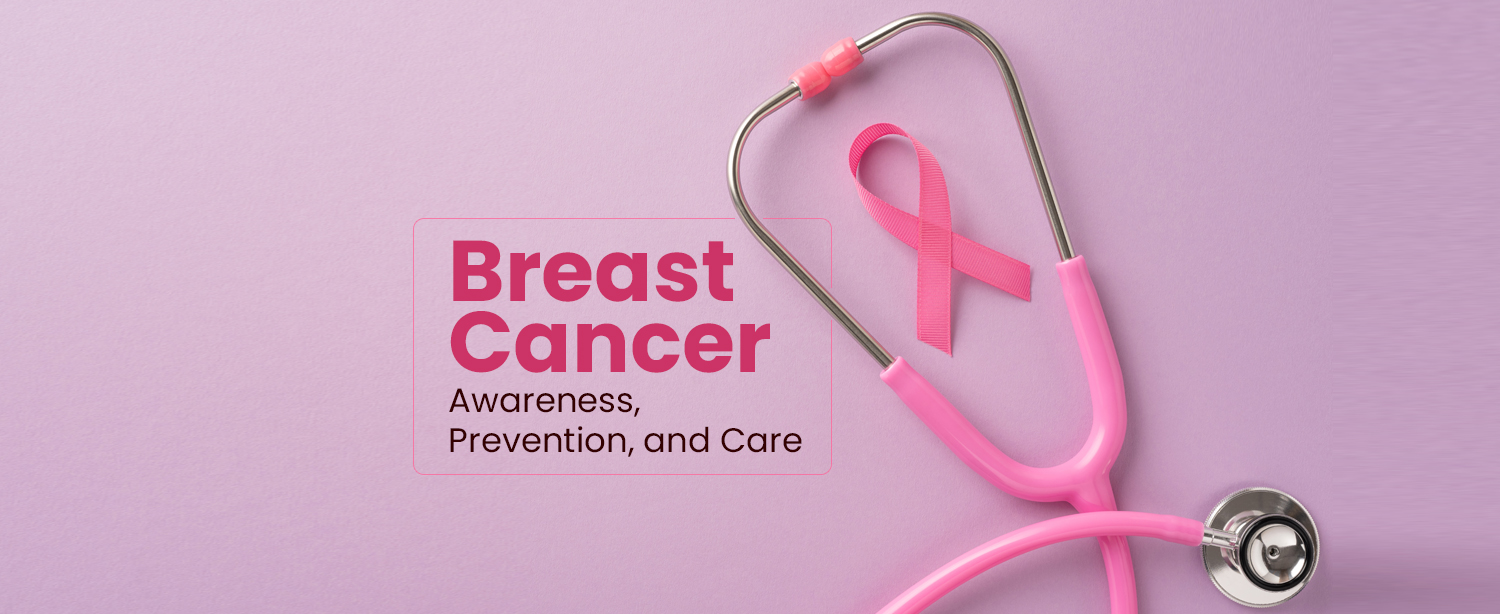Breast cancer remains one of the most prevalent cancers affecting women globally, making awareness and education essential for early detection and effective treatment. Breast cancer is a pressing health concern in India, with increasing incidence rates making it the most common cancer among women, surpassing cervical, ovarian, and uterine cancers. Women aged 30 to 50 are particularly vulnerable, with risk escalating until ages 50 to 64. Alarmingly, statistics indicate that 1 in 28 Indian women may develop breast cancer in their lifetime, with urban areas facing a greater burden compared to rural regions.
Table of Contents
Understanding Breast Cancer
Breast cancer originates in the cells of the breast, and its development can vary greatly among individuals. It is classified into different types, including invasive and non-invasive forms. The most common type is invasive ductal carcinoma, which begins in the milk ducts and can spread to nearby tissues. Other types include lobular carcinoma and triple-negative breast cancer, which may have different implications for treatment and prognosis.
The risk factors for breast cancer are multifaceted, including age, genetic predisposition, lifestyle choices, and hormonal factors. For instance, women over the age of 55 are at a higher risk, as are those with a family history of breast or ovarian cancer. Additionally, factors such as obesity, sedentary lifestyle, and alcohol consumption can increase the likelihood of developing breast cancer.
The Importance of Early Detection
Early detection plays a critical role in the successful treatment of breast cancer. Regular screenings, such as mammograms, can help identify cancer in its earliest stages when it is most treatable. The American Cancer Society recommends that women begin annual mammograms at age 45, or earlier if they have a family history or other risk factors.
Self-examinations are also essential for early detection. Women should familiarize themselves with their breasts and report any changes, such as lumps, swelling, or changes in shape or texture, to their healthcare provider. Educating oneself about the signs and symptoms of breast cancer can empower women to take charge of their health.
Prevention Strategies
While there is no guaranteed way to prevent breast cancer, certain lifestyle modifications can significantly reduce risk. These include:
- Healthy Diet
A balanced diet rich in fruits, vegetables, whole grains, and lean proteins can support overall health and may help lower cancer risk. Limit the intake of processed foods and sugars. - Regular Exercise
Engaging in physical activity for at least 150 minutes a week can help maintain a healthy weight and reduce the risk of breast cancer. - Limiting Alcohol Intake
Studies suggest that consuming alcohol in moderation or abstaining altogether can reduce breast cancer risk. - Smoking Cessation
Quitting smoking has numerous health benefits, including a lower risk of breast cancer. - Hormonal Management
Women considering hormone replacement therapy should consult their healthcare providers about the associated risks and benefits, especially if they have a family history of breast cancer. - Genetic Testing
For those with a significant family history of breast cancer, genetic testing can identify mutations in genes such as BRCA1 and BRCA2, which significantly increase the risk. In some cases, preventive measures, such as prophylactic mastectomy or oophorectomy, may be recommended.
Breast Cancer Treatment at Kokilaben Dhirubhai Ambani Hospital
Selecting the right oncologist is essential for effective breast cancer management. Skilled oncologists specializing in breast cancer care can offer personalized treatment plans tailored to individual needs. At the best hospital for breast cancer treatment in Mumbai, our Centre for Cancer features a multidisciplinary team of healthcare professionals dedicated to providing comprehensive care. This collaborative team includes oncologists, surgeons, radiologists, pathologists, and support staff, all working together to deliver coordinated and effective treatment for patients.
Furthermore, support groups and counseling can provide valuable resources for both patients and their caregivers. Breast cancer awareness, prevention, and care are paramount in the fight against this pervasive disease. By understanding risk factors, engaging in early detection, and adopting healthy lifestyle choices, women can empower themselves and reduce their risk of breast cancer. https://www.kokilabenhospital.com/departments/centresofexcellence/centrefor_cancer/comprehensivebreastcareunit.html


